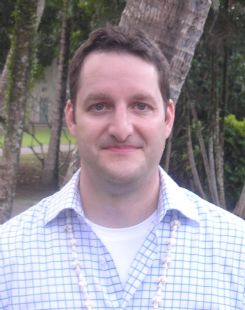 October 9, 2011, Greencastle, Ind. — A story in Australia's Sydney Morning Herald on this weekend's Rugby World Cup quarterfinals notes, "One fifth of all World Cup players are of Pacific island background, from Fiji, Samoa and Tonga." Damien Murphy writes, "Robert Dewey, assistant professor of history at DePauw University in Indiana, has made a study of rugby in the Pacific. He says the sport is segregated and played outside formal coaching structures, developing an exciting style of 'our own game' that revitalised rugby across the world. Rugby, he says, was appropriated as a 'national game' among Tongans, Samoans and indigenous Fijians."
October 9, 2011, Greencastle, Ind. — A story in Australia's Sydney Morning Herald on this weekend's Rugby World Cup quarterfinals notes, "One fifth of all World Cup players are of Pacific island background, from Fiji, Samoa and Tonga." Damien Murphy writes, "Robert Dewey, assistant professor of history at DePauw University in Indiana, has made a study of rugby in the Pacific. He says the sport is segregated and played outside formal coaching structures, developing an exciting style of 'our own game' that revitalised rugby across the world. Rugby, he says, was appropriated as a 'national game' among Tongans, Samoans and indigenous Fijians."
Dr. Dewey tells the newspaper, ''Early rugby played an important role in expressions of village pride and masculinity, partly because so many of the traditional institutions into manhood had disappeared. In more recent times, cast in the role  of perpetual underdog, the successes and occasional upsets provided by island teams on the pitch went a long way to popularising rugby at home, beyond the elite groups which had initially played the game … It became the national game as well as a catalyst for regional connections.''
of perpetual underdog, the successes and occasional upsets provided by island teams on the pitch went a long way to popularising rugby at home, beyond the elite groups which had initially played the game … It became the national game as well as a catalyst for regional connections.''
Access the complete article -- "Pacific's brawn drain is world rugby's gain" -- at the Morning Herald's website.
In 2009, Professor Dewey was elected a Fellow of the Royal Historical Society (RHS) for his book, British National Identity and Opposition to Membership of Europe, 1961-63: The Anti-Marketeers. Learn more in this previous story.
He also published a chapter entitled "Pacific Islands Rugby: navigating the global professional era," which appeared in the 2008 book, The Changing Face of Rugby.